Read This: The Lost Words, a spell book to bring nature back to life
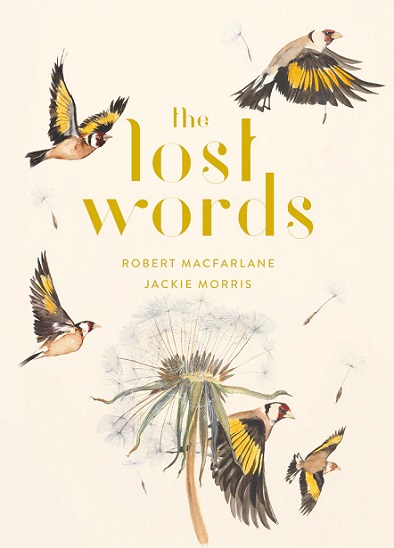
For Christmas last year, I gave a book to my grown daughter that enchanted me when I paged through it in a bookstore in Maine. I carried it home and read it cover to cover, savoring its evocative poems about plants and animals and its magical illustrations, before I wrapped it and put it under the tree. And then, after she’d opened it, I read it again with her. Who was that present really for, you may ask?
I’ve been meaning to share The Lost Words (2017) by Robert Macfarlane, illustrated by Jackie Morris, with you ever since. Consider this your pre-holiday opportunity to buy it for your own child or grandchild or, even better, for yourself. And as it turns out, a follow-up to The Lost Words was recently published called The Lost Spells. I will be checking that one out soon.
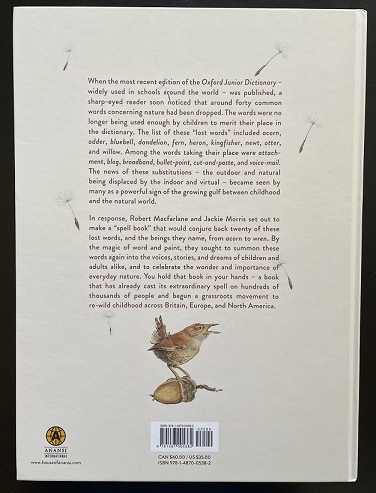
The Lost Words is a book for lovers of language and nature, and it has a clever hook, as the back cover explains:
“When the most recent edition of the Oxford Junior Dictionary — widely used in schools around the world — was published, a sharp-eyed reader soon noticed that around forty common words concerning nature had been dropped. The words were no longer being used enough by children to merit their place in the dictionary. The list of these ‘lost words’ included acorn, adder, bluebell, dandelion, fern, heron, kingfisher, newt, otter, and willow. Among the words taking their place were attachment, blog, broadband, bullet-point, cut-and-paste, and voice-mail….
In response, Robert Macfarlane and Jackie Morris set out to make a ‘spell book’ that would conjure back twenty of these lost words, and the beings they name, from acorn to wren. By the magic of word and paint, they sought to summon these words again into the voices, stories, and dreams of children and adults alike, and to celebrate the wonder and importance of everyday nature.”
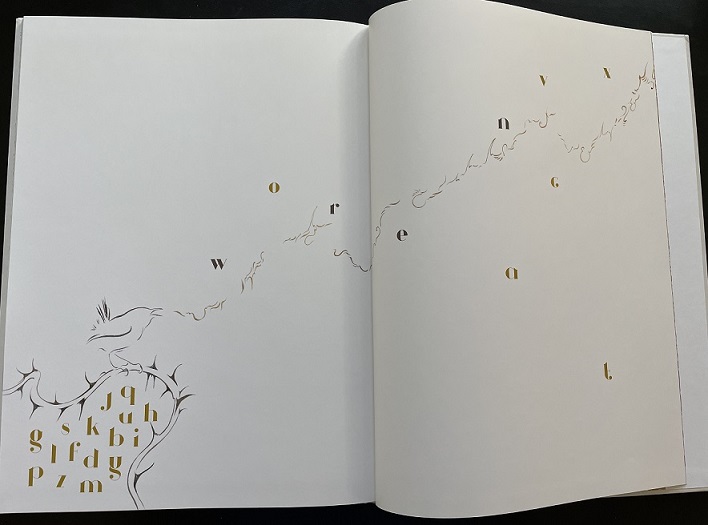
When the word blog has displaced wren (which is my daughter’s middle name and one of my favorite birds in the garden) in an authoritative source used by children — well, this blogger figures she’d better advocate for the lost words! Look at the illustration above, from the chapter called wren. Do you see w-r-e-n spelled out in a ghostly wren’s trill? This is how the first page of each lost word begins — with a word and what it represents almost gone, but not quite. You can still pick it out if you try.
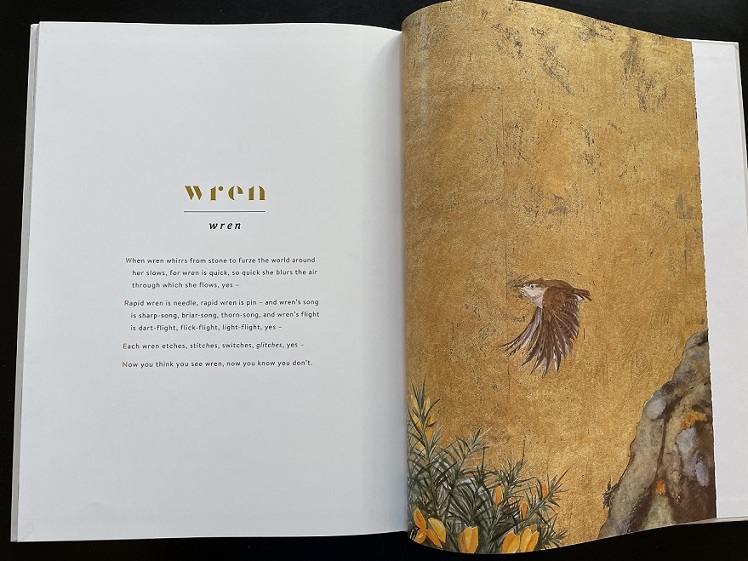
The next page presents a “spell” — an acrostic poem, where the first letter of each line spells out the title vertically — about the lost creature or plant. Read the spell aloud, and you bring it to life! The animal or plant appears on the facing page, a single, fleshed-out specimen emerging from moody colors, as if being magically coaxed to life from a faded tapestry.
Each poem dazzles the ear with wordplay, alliteration, onomatopoeia, and rhyme. Macfarlane evokes each living creature with words that, especially when read aloud, conjure its essence. Of the darting, hopping wren he writes:
“Rapid wren is needle, rapid wren is pin — and wren’s song
is sharp-song, briar-song, thorn-song, and wren’s flight
is dart-flight, flick-flight, light-flight, yes —
Each wren etches, stitches, switches, glitches, yes —
Now you think you see wren, now you know you don’t.”
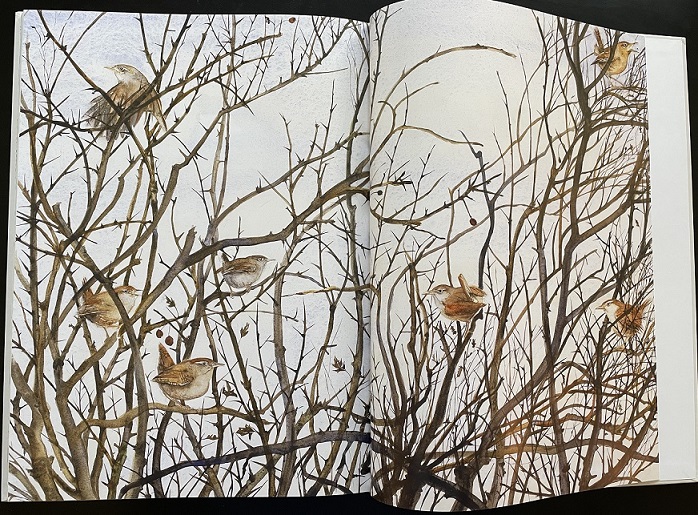
After reading the spell, you turn the page — and there’s the wren in living color, in abundance, darting through a thorny shrub. The spell has worked its magic. The wren exists again!
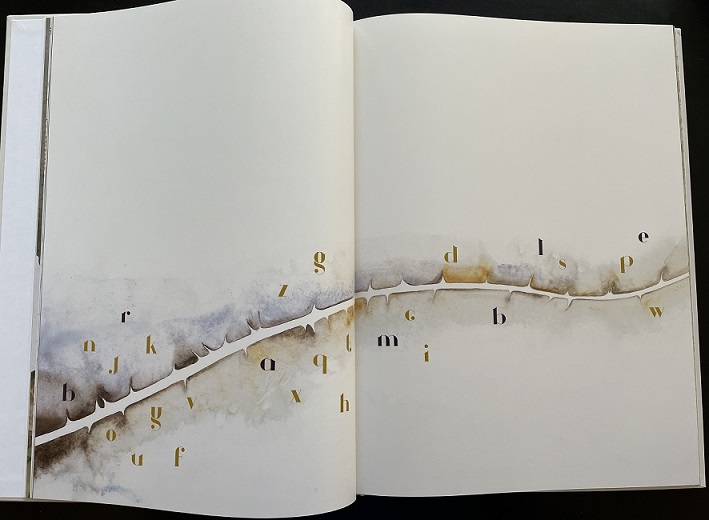
Here’s bramble.
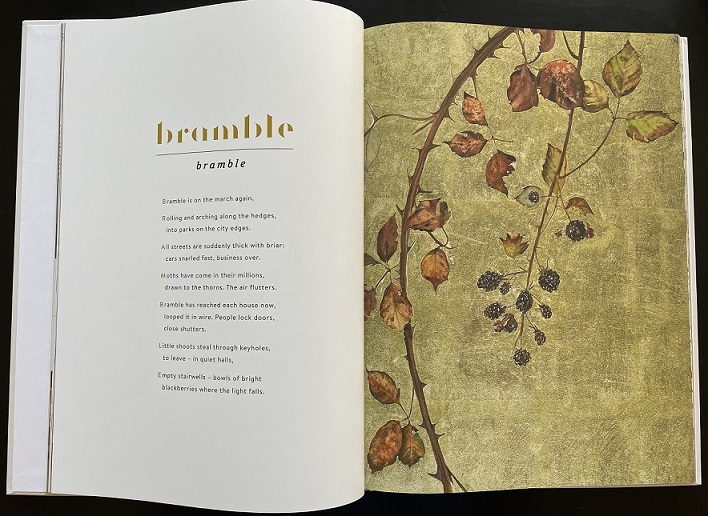
“Bramble is on the march again,
Rolling and arching along the hedges, into parks on the city edges.
All streets are suddenly thick with briar: cars snarled fast, business over…
Bramble has reached each house now, looped it in wire. People lock doors, close shutters.
Little shoots steal through keyholes, to leave — in quiet halls,
Empty stairwells — bowls of bright blackberries where the light falls.”
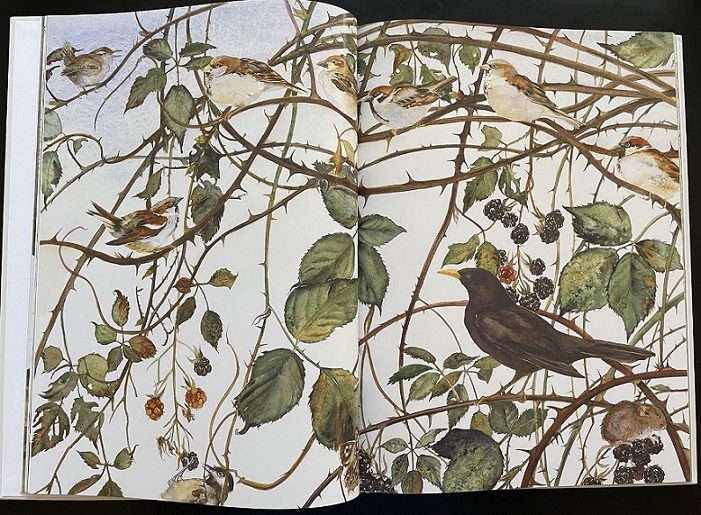
And there it is — bramble, in all its prickly, berrying glory, alive with hungry birds. Who can resist this? Not me. I’ve brought all the lost words to life at my house. Maybe you’ll want to do the same at yours.
One last detail: this is an oversized hardback book, the better to admire the illustrations. Buy enough wrapping paper.
Disclosure: I bought a copy of The Lost Words and reviewed it at my own discretion and without any compensation. This post, as with everything at Digging, is my personal opinion.
__________________________
Digging Deeper
Come learn about gardening and design at Garden Spark! I organize in-person talks by inspiring designers, landscape architects, authors, and gardeners a few times a year in Austin. These are limited-attendance events that sell out quickly, so join the Garden Spark email list to be notified in advance; simply click this link and ask to be added. Season 8 kicks off in fall 2024. Stay tuned for more info!
All material © 2025 by Pam Penick for Digging. Unauthorized reproduction prohibited.


Oh Pam, I love that book and I am delighted you have featured it on your blog. I follow both Robert Macfarlane and Jackie Morris on Instagram — they are wonderful.
I’m hearing from so many people who already know and love this book, which is wonderful. Thanks for the reminder to check out the author’s and illustrator’s Insta pages.
Thank you! Thank you! I’m buying this for myself. P.x
You will love it. 🙂
It looks beautiful, Pam. Thanks for the recommendation. 🙂
You bet, Beth!
Ooooooh, I need to buy this for one of my favorite kids named Wren! I think she would love it.
Another Wren? Love it!